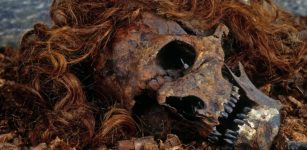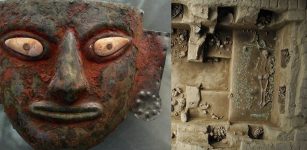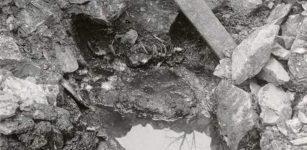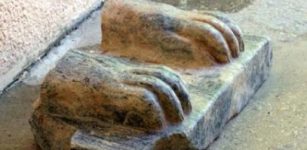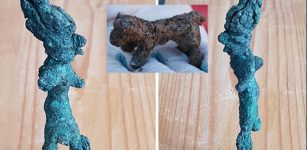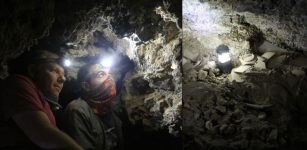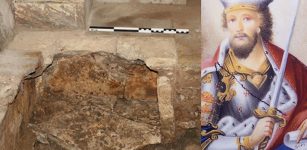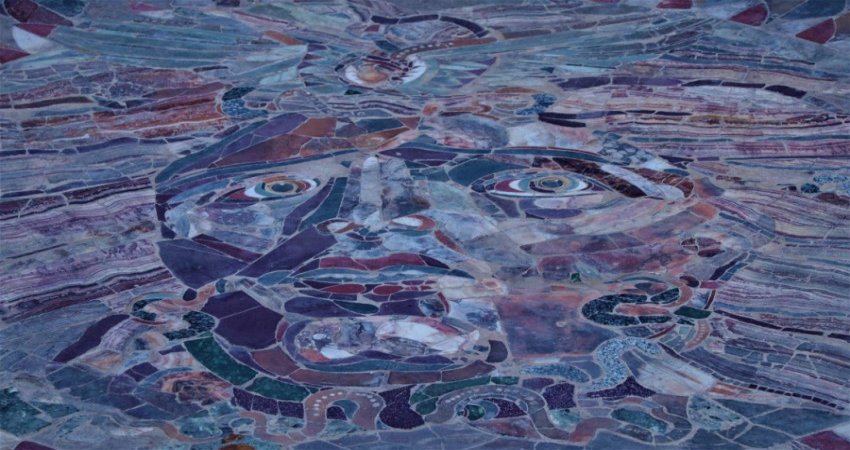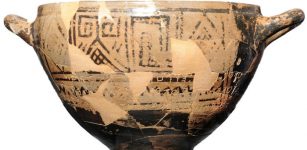Facial Reconstruction Of Ava: 3,700-Year-Old Bronze Age Woman
MessageToEagle.com – The bones, skull and teeth of a 3,700-year-old woman today known as Ava were discovered back in 1987 in Achavanich located near Loch Stemster in Caithness, Scotland. The skeletal remains were that of a young Caucasian woman aged 18-22.
Today scientists have been able to do a facial reconstruction so we can see what Ava looked like.
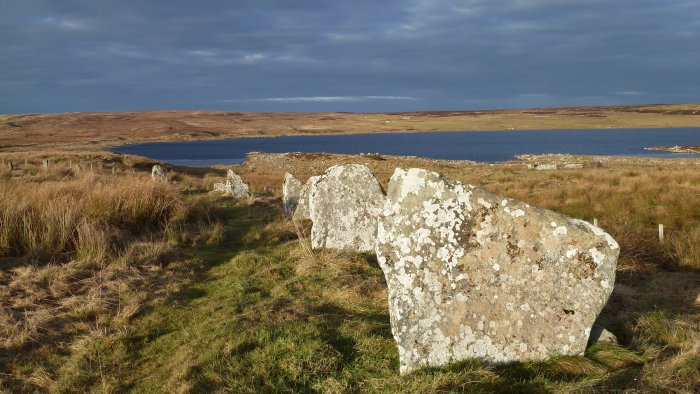
“Ava”, is an abbreviation of Achavanich. What is unusual about this particular Bronze Age woman is that she was buried in a pit dug into solid rock and her skull is an abnormal shape which some suggest was the result of deliberate binding. It is believed Ava was part of a much wider European group known as the Beaker people (c. 2800 – 1800 BCE)
The Beaker people received their name from their distinctive bell-shaped beakers, decorated in horizontal zones by finely toothed stamps. Their culture is often called the Bell-Beaker culture. Short and round skull shapes were common amongst this group, but Ava’s skull is exaggerated and of an abnormal, uneven shape.
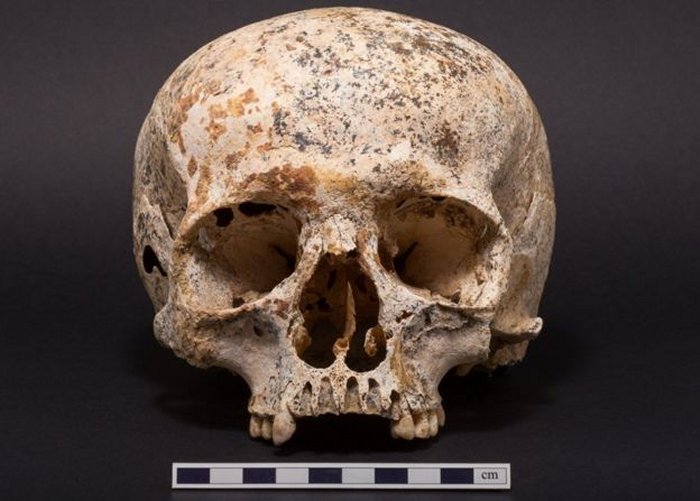
Forensic artist Hew Morrison, a graduate of the University of Dundee, created the reconstruction.
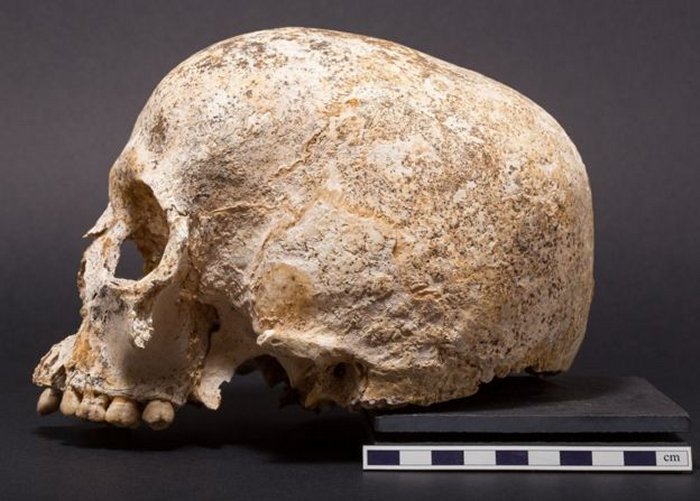
Mr. Morrison used an anthropological formula to calculate the shape of Ava’s missing lower jaw, and also the depth of her skin. He also took advantage of used a chart of modern average tissue depths for reference.
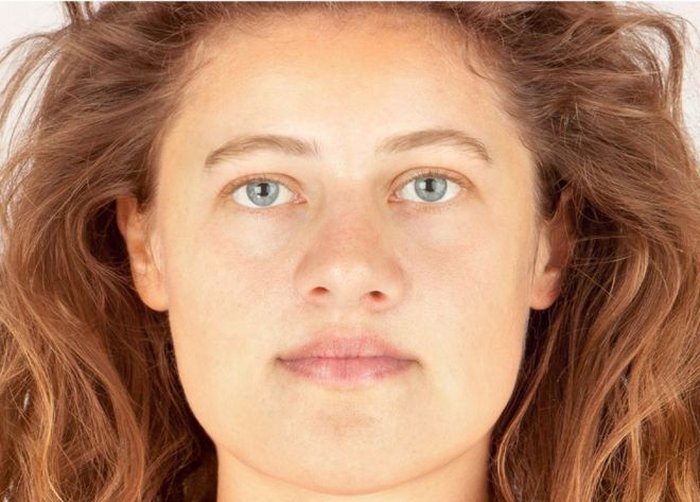
“The size of the lips can be determined by measuring the enamel of the teeth and the width of the mouth from the position of the teeth. Normally, when working on a live, unidentified person’s case not so much detail would be given to skin tone, eye or hair colour and hair style as none of these elements can be determined from the anatomy of the skull.
See also:
Facial Reconstruction Of ‘Mrs Getty’ – A High-Status Young Anglo-Saxon Woman
Is This The Face Of A 16th Century Pirate Or Criminal?
This Is What The Siberian Princess Ukok Looked Like In Real Life
So, creating a facial reconstruction based on archaeological remains is somewhat different in that a greater amount of artistic license can be allowed, “Mr. Morrison said.
“Being able to look at the faces of individuals from the past can give us a great opportunity to identify with our own ancient ancestors,” he added.
MessageToEagle.com

